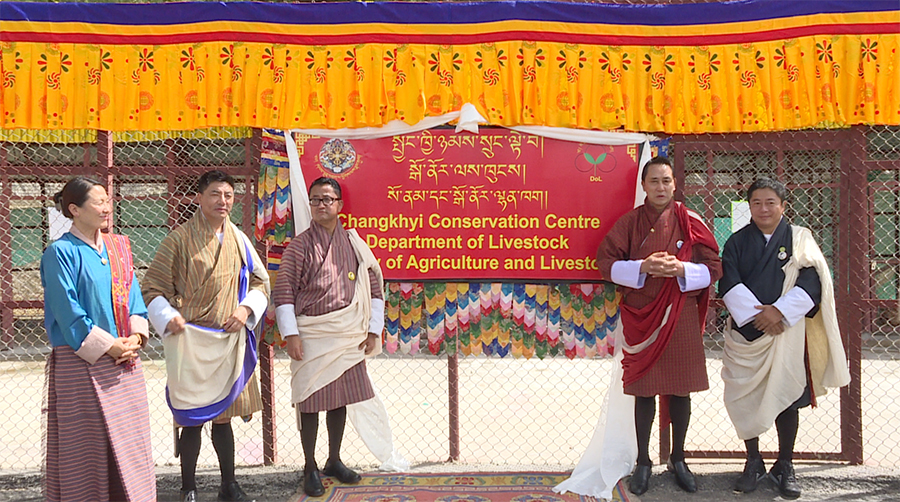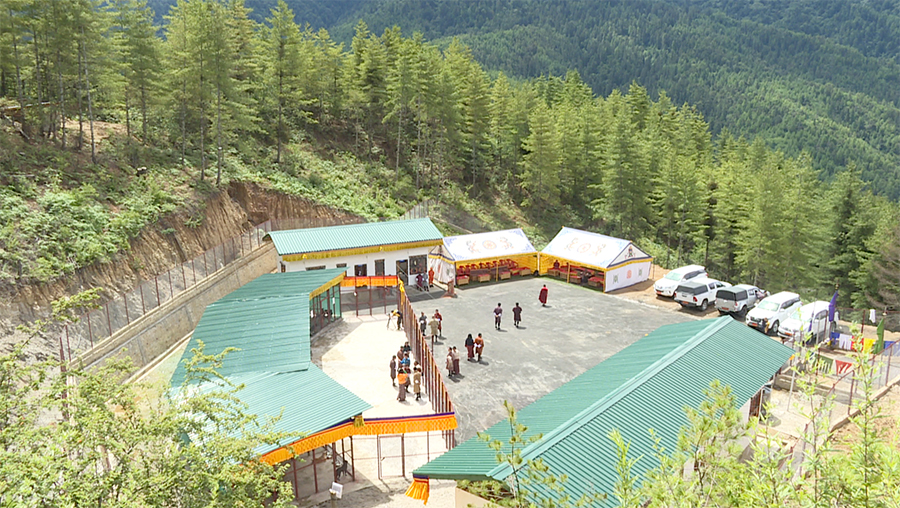
To conserve Changkhyi, the dog breed native to Bhutan, a Changkhyi Conservation Centre has been opened at Yuesipang in Thimphu. The Ministry of Agriculture and Livestock inaugurated the centre today. The centre currently houses 55 Changkhyi dogs. With a 100 per cent sterilisation programme for stray dogs, the initiative aims to conserve pure Bhutanese native dogs.
 The Changkhyi Conservation Centre is located three kilometres from Yuesipang. The centre’s facilities include grooming, a kitchen, a store, an office, toilets, two units of caretaker’s house, a main dog cannel, and treatment and surgery rooms.
The Changkhyi Conservation Centre is located three kilometres from Yuesipang. The centre’s facilities include grooming, a kitchen, a store, an office, toilets, two units of caretaker’s house, a main dog cannel, and treatment and surgery rooms.
The government spent Nu 26 M on the centre’s construction along with roads, drains and fencing supported by the National Waste Management and Stray dog population Flagship Programme.
The construction began in June last year and was completed in March this year.
The centre has 16 males, 25 females, and 14 puppies.
‘‘As we are doing 100 per cent coverage of free-roaming dog sterilisation, we thought that in future we might lose these dogs. Hence, we thought that it is better to conserve some so that in future if we require any free-roaming dogs from Bhutan we can readily take them out from these centres,’’ said Dr Kinley Dorji, Team Leader, NADPM&RCP.
He added that by preserving the pure native dogs, the centre can supply Bhutanese farmers with dogs to protect their crops from wild animals.
To identify pure Bhutanese native dogs, the centre in collaboration with the National Biodiversity Centre will send blood samples to carry out genetic studies in South Korea. If the dogs are not found to be native, they will be sent to the Nakulu dog centre.
The native Changkhyi dogs are characterised by raised or erect ears, raised tails, long snouts, strong limbs and tucked abdomens.
‘‘We are doing gene profiling to find out whether our stray dogs have got blood from any other dogs, especially the Tibetan mastiff, and breeds which are imported from outside Bhutan. So we will make sure that what we have here is pure Bhutanese free-roaming dogs. In future, we can develop a breed which is only available and which is specific to Bhutan,’’ added Dr Kinley.
Nationwide Accelerated Dog Population Management and Rabies Control Programme has successfully sterilised more than 61,600 dogs in the country. Except for Samdrup Jongkhar, the programme has achieved 100 per cent sterilisation coverage in the other 19 districts.
The Department of Livestock in collaboration with DeSuung launched the Nationwide Accelerated Dog Population Management and Rabies Control Programme in August 2021, aiming to reduce dog bites and eliminate human deaths from rabies by 2030.
Karma Wangdi
Edited by Sonam Pem


